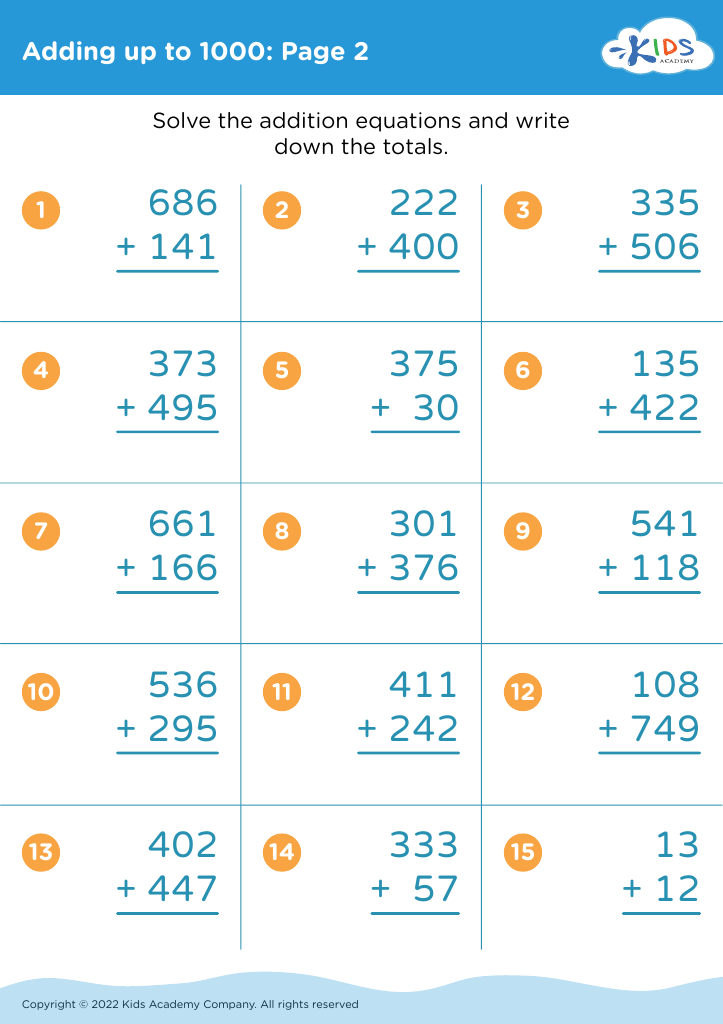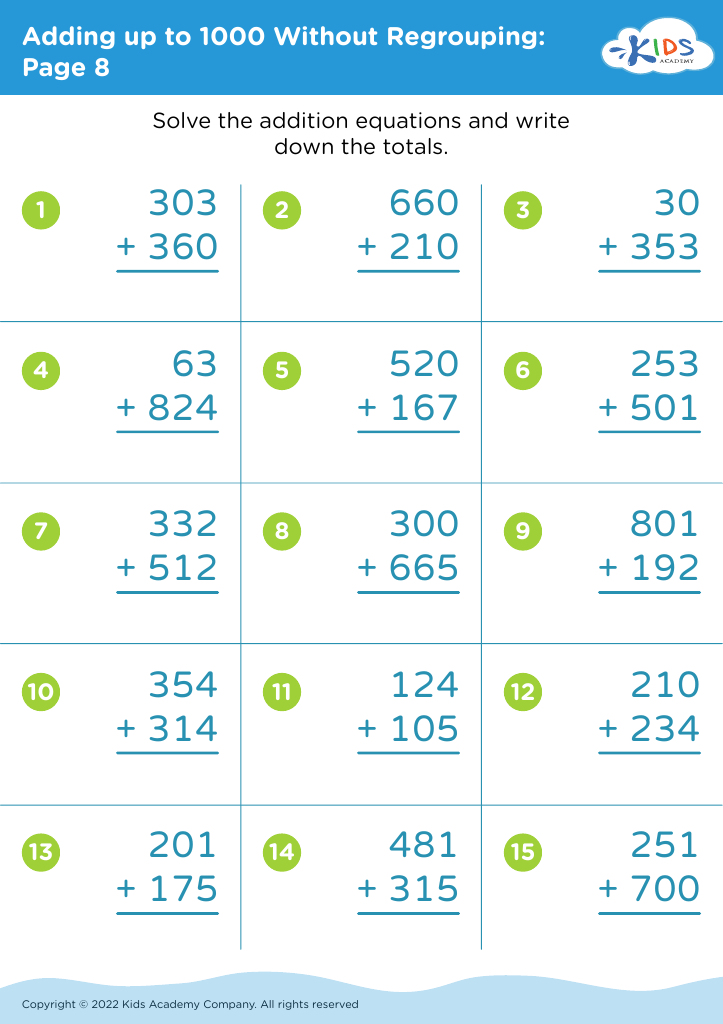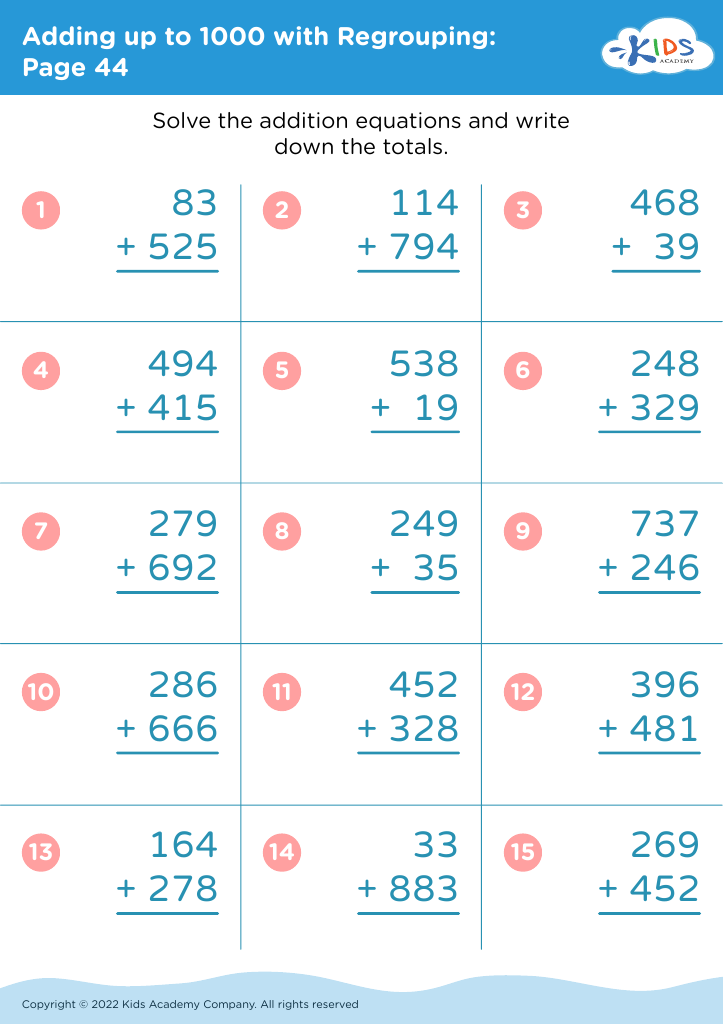Develop critical thinking Addition & Subtraction Worksheets for 9-Year-Olds
3 filtered results
-
From - To
Welcome to our collection of addition and subtraction worksheets designed specifically for 9-year-olds! These engaging resources not only strengthen basic math skills but also enhance critical thinking abilities. Each worksheet encourages students to analyze problems, explore different strategies, and reach logical conclusions, all while practicing vital arithmetic operations. Perfect for independent study or classroom activities, our worksheets promote a deeper understanding of mathematical concepts through fun, interactive exercises. Help your young learners develop their problem-solving skills and boost their confidence in math with our thoughtfully crafted worksheets. Explore our collection and make math both enjoyable and educational!
Developing critical thinking in addition and subtraction for 9-year-olds is essential for several reasons. At this age, children are transitioning from basic arithmetic to more complex mathematical concepts, and fostering critical thinking enables them to approach math problems more strategically. Instead of merely memorizing facts and procedures, children learn to analyze problems, evaluate different methods, and infer solutions, skills that are invaluable in all areas of learning and life.
Furthermore, critical thinking empowers students to apply their knowledge in real-world scenarios, encouraging them to ask questions, reason logically, and think independently. For example, when faced with word problems or multi-step calculations, students who can critically assess the situation are more likely to devise effective strategies for solving the problems.
Additionally, children who develop these skills are better prepared for future mathematical challenges and can adapt more easily to new and abstract concepts. For parents and teachers, instilling an appreciation for critical thinking in math not only lays a strong foundation in arithmetic but also nurtures a lifelong love for learning and problem-solving. Ultimately, fostering critical thinking in addition and subtraction enhances confidence and resilience, preparing children for academic success and everyday challenges.



















